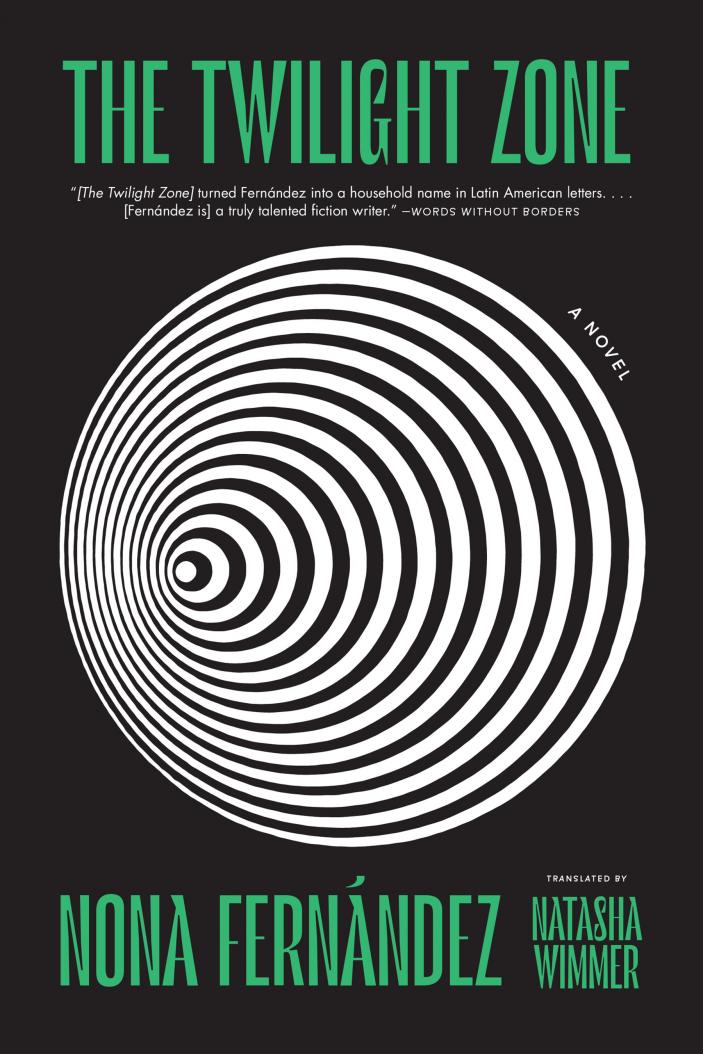One of my favorite podcasts regularly mentions a concept called “The E Crisis.” Short for “epistemological,” The Trillbillies opine about the loss of a foundational narrative or mythology for America. This results in a lack of a common system whereby people know the difference between truth and opinion.
The group is comprised of leftist organizers living in Appalachia. But, they are by no means bemoaning the fact that the U.S. is no longer a “City on a Hill”. They also fully understand that the American Dream has truly existed just for a handful of people. Yet, they also believe that America is adrift and possibly lost for good without a bedrock truth anchoring the country.

Running in tandem to this is the country of Chile as presented in The Twilight Zone by Nona Fernández. Our unnamed narrator wrestles with truth, belief, and memory throughout this magnificent book, translated by Natasha Wimmer and published on Graywolf Press. This is a profound story told through her own eyes and recollections. The narrator employs a rich, deep, and flawed cast of characters as she seeks to understand her home country. She also wonders if Chili can ever cast off the legacy of the Pinochet Dictatorship.
Central to the entire project is a man named Andrés Antonio Valenzuela Morales. In the book, he’s more commonly referred to as “The Man Who Tortured People.”
In 1984, so the story goes, he turned himself in as a whistle blower against the Pinochet regime. He admitted to a years-long series of abductions, tortures, murders, and more against all manner of dissidents. Across the ensuing years, he was the subject of numerous articles, books, television programs, and documentaries. All from a secure location where the Pinochet government couldn’t find him.
Our narrator is nigh onto obsessed with him for several reasons. Most of them have to do with the rippling consequences of his confession. Namely, how it served as a spark that eventually brought down Pinochet’s regime. However, the narrator laments the limited public discussion of “The Man’s” role in the book’s present. She also details multiple stories from earlier in her life. In those stories, the Chilean people simply refused to acknowledge reality of what he and others did.
The book is comprised of four sections, with an underlying story or two about life under Pinochet acting as guide.
The narrator’s present-day ruminations then serve as the connective tissue binding it all together.
- With “Entry Zone,” we learn about how stories are told, and how they’re remembered. We also learn how people both ignore and forget.
- In “Contact Zone,” we discuss what memory does to us and how we respond to certain situations. The situations include choices we make in the moment, and ones we make in the long-term.
- “Ghost Zone” provides the legitimately thrilling tale of how “The Man Who Tortured People” escaped Chile. This serves as a metaphor for how truth and belief can be manipulated.
- Rounding out the book is “Escape Zone”. In it, we dissect memory, choice, regret, and consequences. This comes complete with a history of Chile under Pinochet set loosely to Billy Joel’s “We Didn’t Start the Fire.”
The concept of The Twilight Zone television program serves as a resplendent lens for our narrator.

Each story of hate, hurt, pain, and suffering under the Pinochet regime feels like the inverse of that classic program. We don’t get Rod Serling coolly intoning the facts though. Instead, our narrator reveals a grimmer and more gruesome reality with each plot twist. The Chilean people are increasingly unmoored from reality by ignoring what’s going on around them. They then lose the tools for assessing what happened as an entire country once Pinochet is swept from power.
The narrator struggles to reckon with her country being unwilling to talk about its past constructively. The result is a false present and a future built upon pretense and convenient memories. People ignored the state violence and disappearances out of fear for their own lives. It also gave the populace a staggering cognitive dissonance. They built a towering monument to how the country emerged from the Pinochet Regime. This doesn’t necessarily mean they fully processed what happened.
Despite the grim and utterly devastating stories the narrator conveys, she’s consumed with hope. She longs for a future wherein her people truly examine themselves. Specifically, how they experienced and processed what Pinochet did to the country, so they can finally emerge from his grasp.
Yet, by refusing to acknowledge the role of “The Man Who Tortured People,” Chile hides from its true self. Instead, they choose to live in a “Twilight Zone” of their own making.

Much like The Trillbillies and their search for a system of knowledge that could sustain the future of American politics, Nona Fernández is on a quest for a deeper epistemology in Chile’s. She is a masterful storyteller who has created an evocative and gut-wrenching chronicle of the Chilean psyche. The Twilight Zone is a resounding triumph of hope amidst grief.
This is a novel that reads like a memoir. It’s an examination of collective memory. It also examines how we shape it as individuals and as a group, and ultimately how it shapes us. You ache for the people, you connect with the narrator, and you empathize with “The Man.”
Memory is powerful, but so is reckoning with it so we can move forward and escape those “twilight zones”. Maybe investigating a deeper truth starts with admitting our wrongs and asking forgiveness? After resolving that, we can look to make better choices than we did previously.


